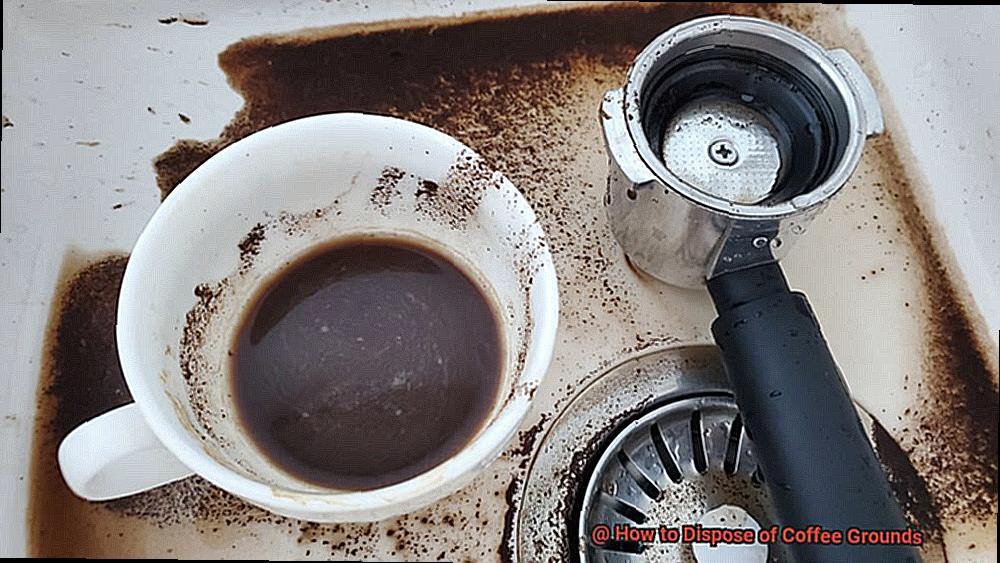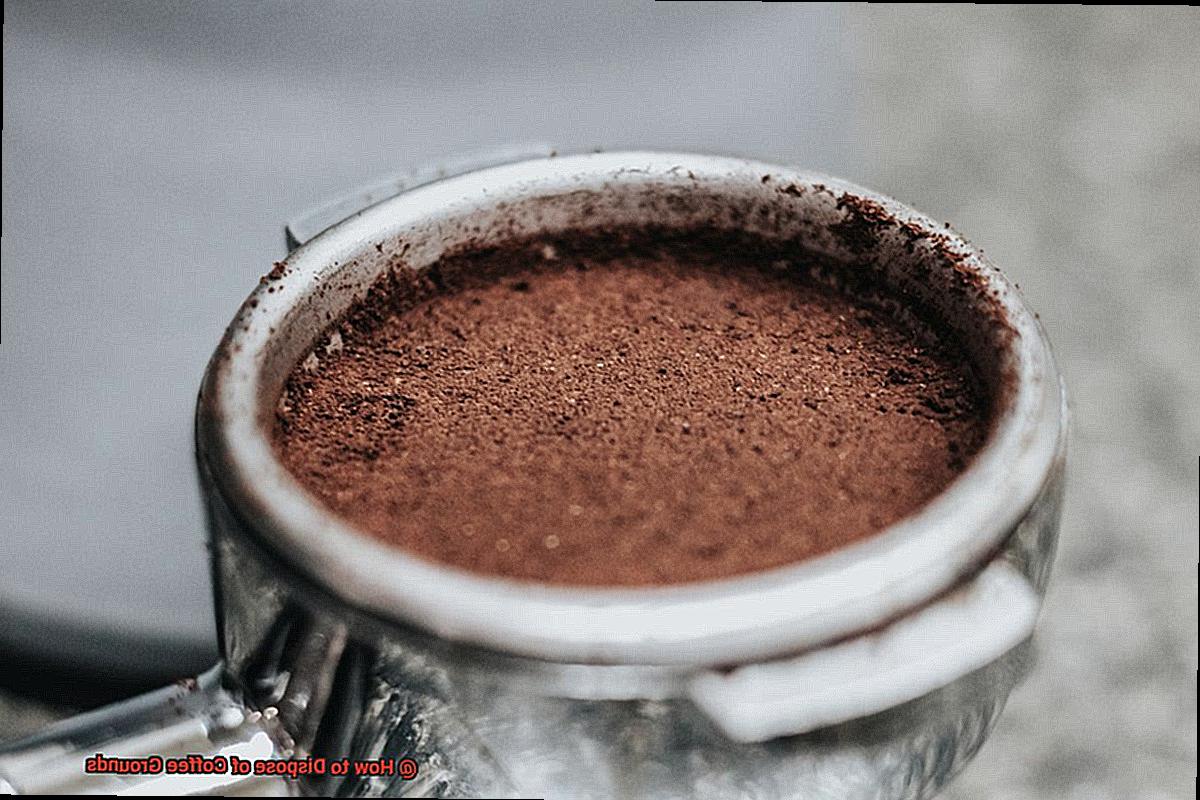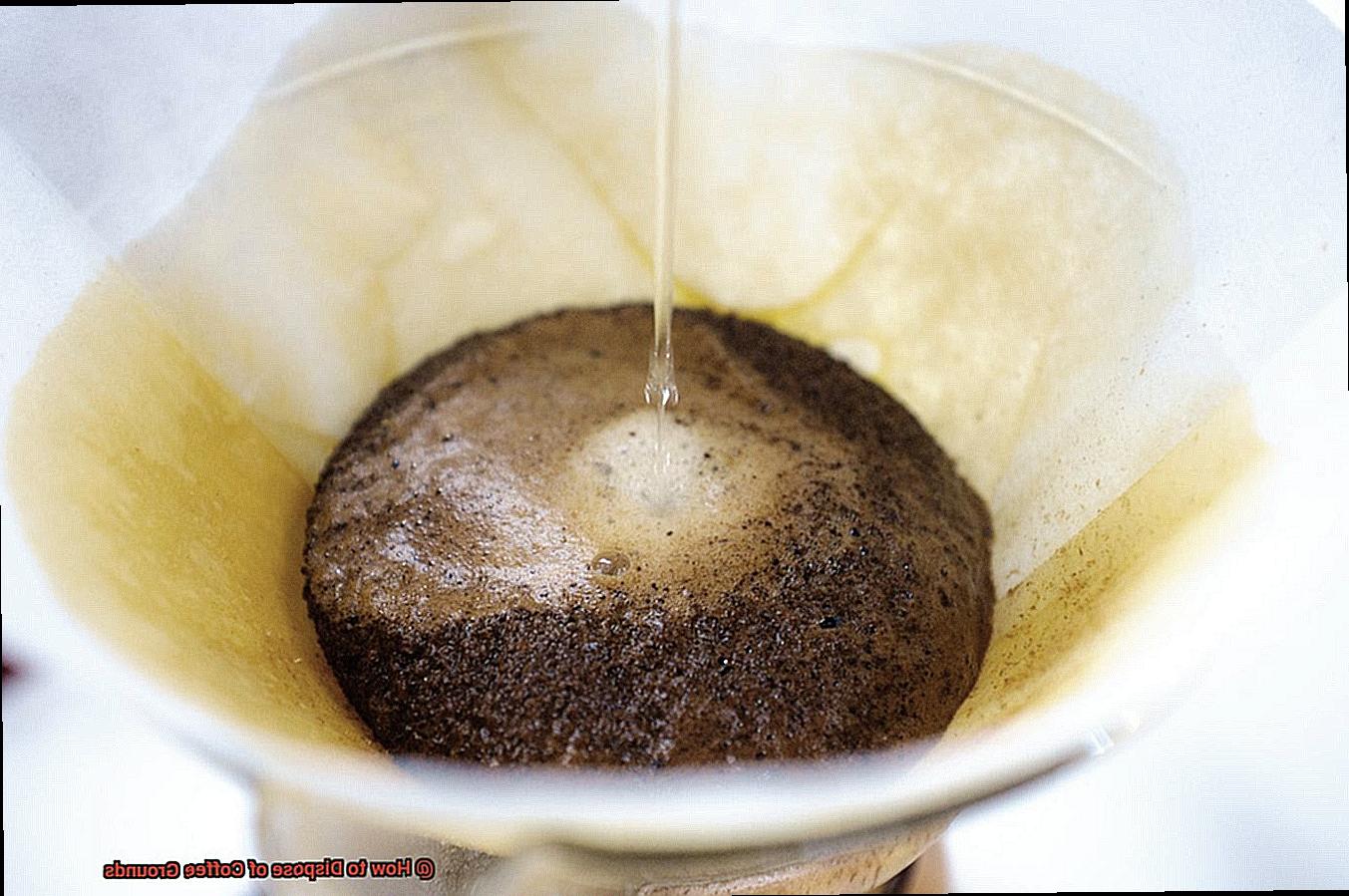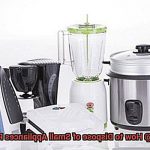Coffee is a staple in our daily routine, providing us with the energy and enthusiasm we need to start our day.
But what about the leftovers – those coffee grounds that often end up in the trash? Unfortunately, discarding coffee grounds can have a negative impact on the environment.
The good news is that there are many ways to recycle and reuse coffee grounds, minimizing their environmental impact. In this article, we’ll explore eco-friendly ways to dispose of coffee grounds.
We’ll discover how these versatile little beans can be used beyond just your morning cup of joe. From organic fertilizers for plants to skin exfoliating scrubs, there are plenty of innovative ways to put those leftover coffee grounds to use.
It’s also important to note that improperly disposing of coffee grounds can harm the climate. That’s why it’s crucial to know how to dispose of them properly – not only for our own well-being but also for the sake of the planet.
So, let’s dive in now.
What are Coffee Grounds?
Contents
These gritty remnants of your morning brew are more than just trash, as they can be repurposed in a variety of ways that are beneficial to both you and the planet.
Let’s explore some of the many uses of coffee grounds in more detail.
First, coffee grounds make a fantastic addition to compost heaps.
They are high in nitrogen and other essential nutrients that can help fertilize soil, making them an excellent addition to any compost pile. When combined with other compostable materials like leaves and food scraps, coffee grounds create a balanced blend that enriches the soil and promotes healthy plant growth.
Coffee grounds also have natural pest-repelling properties, which can help keep slugs, snails, ants, and cats at bay. Simply sprinkle them around the base of your plants to create an eco-friendly barrier that won’t harm animals or plants.
In addition to their horticultural benefits, coffee grounds can also be used in personal care products. The caffeine found in coffee has been shown to improve circulation and reduce inflammation in the skin – making it an ideal ingredient for homemade exfoliating scrubs or hair treatments that stimulate natural growth.
But wait, there’s more. Coffee grounds can also be used for household cleaning.
They are abrasive enough to remove dirt and grime from surfaces like stainless steel or porcelain, yet gentle enough for delicate surfaces. When mixed with vinegar or baking soda, they make an all-purpose cleaner that is safe and effective for use throughout the home.
Lastly, if none of these options work for you, coffee grounds can also be employed as an odor absorber in your refrigerator or pantry. They’re a great alternative to chemical-laden air fresheners.
So, it’s clear that coffee grounds have far more potential than we might think. By exploring these various uses, you can minimize waste while contributing to a cleaner environment.
Benefits of Disposing of Coffee Grounds

These little brown morsels are a treasure trove of nutrients and have a multitude of uses, making them a valuable addition to your daily routine. One of the most significant benefits of disposing of coffee grounds properly is its positive impact on the environment.
Rather than adding to landfill waste, coffee grounds can be composted and decomposed into nutrient-rich soil. This method is not only eco-friendly, but it also enriches your garden soil.
Coffee grounds are rich in nitrogen, making them an excellent natural fertilizer. So, by disposing of coffee grounds in your garden, you’ll encourage healthy plant growth while improving the quality of the soil.
Did you know that coffee grounds can also act as a natural insect repellent?
Yes. Coffee grounds contain caffeine, which is toxic to insects like slugs and snails.
You can protect your plants from these pests without resorting to harsh chemicals by disposing of coffee grounds around their base. Additionally, coffee grounds are an effective odor eliminator.
They can trap unpleasant smells in your refrigerator or freezer when placed in a bowl or container. And if you’re looking for a cleaning agent that’s easy on the environment, look no further than coffee grounds.
They act as an abrasive that can help clean pots and pans and unclog drains. To wrap up, coffee grounds are a versatile and eco-friendly addition to your daily life.
They’re also effective for pest control, odor elimination, and cleaning agents.
Composting Coffee Grounds
Composting coffee grounds is an excellent solution.

These grounds are rich in nitrogen, essential for plant growth, and also help improve soil texture and water retention. Don’t know where to start?
First, you’ll need a compost bin or pile. You can either purchase one or build one yourself using wood pallets or wire mesh.
Be sure to place the bin in a partially shaded area that receives partial sun. To achieve successful composting, it’s essential to balance the carbon-to-nitrogen ratio in your compost.
The ideal ratio is 25-30 parts carbon to one part nitrogen, so mix your coffee grounds with other organic materials like leaves, grass clippings, and vegetable scraps. Be cautious when adding the coffee grounds, as adding too many at once can create a compact layer that inhibits air and water circulation through the compost.
Instead, add small amounts daily and mix them thoroughly with a pitchfork or shovel before placing them in the compost bin. Maintain moisture in the compost by watering regularly but not soaking it.
Over time, the coffee grounds will decompose and transform into nutrient-rich soil that is perfect for your garden or potted plants. Composting coffee grounds is a simple and eco-friendly way of disposing of them while providing your plants with valuable nutrients.
Using Coffee Grounds as a Natural Pest Repellent
Using coffee grounds as a natural pest repellent is a fantastic way to dispose of them while also helping your garden thrive.
What makes coffee grounds such an effective deterrent? Well, it’s simple.
They contain caffeine and other compounds that are toxic to insects and pests. Sprinkling coffee grounds around the base of plants or on the soil surface creates a barrier that pests are less likely to cross.
Or, you can mix coffee grounds with water to create a spray that can be directly applied to plants. One of the most significant advantages of using coffee grounds as a pest repellent is their ability to repel slugs and snails, which can cause significant damage in many gardens.
These pests are attracted to the moisture in the coffee grounds and will avoid crossing over them. Additionally, coffee grounds can help deter ants, beetles, and other insects from attacking your plants.
However, it’s important to remember that moderation is key when using coffee grounds as a pest repellent. Too much coffee grounds can harm your plants by altering the pH of the soil or causing nitrogen burn.
So, use them sparingly and only when necessary. Aside from being an excellent pest repellent, coffee grounds have composting benefits as well.
They’re high in nitrogen, which is beneficial for plant growth and can help your garden flourish. In conclusion, using coffee grounds as a natural pest repellent is a win-win situation for your garden.
Curbside Pickup for Food Waste
Well, you can dispose of them in an eco-friendly and convenient way through curbside pickup for food waste.
Many cities and municipalities offer this service, allowing households and businesses to collect food scraps and other organic waste, including coffee grounds, in a special bin or container. This waste is then taken to a composting facility where it is transformed into nutrient-rich soil for gardening and landscaping.
Not only does this reduce the amount of waste in landfills, but it also minimizes greenhouse gas emissions, making it a win-win situation for the environment. But wait, there’s more.
By participating in curbside pickup for food waste, you’re also contributing to the composting process with your high nitrogen content coffee grounds.
However, it’s important to remove any paper filters or other materials mixed with the coffee grounds before placing them in the bin.
jdu5ESbrWOQ” >
Other Uses for Used Coffee Grounds
Yes, the used coffee grounds that you toss away can be put to use in a myriad of ways, making them an essential addition to your daily routine.
Firstly, coffee grounds are a potent fertilizer for plants.
Packed with nitrogen, they provide an excellent source of nutrients for your garden. Simply sprinkle the used coffee grounds around the base of your plants and let nature do the rest.
Your plants will thank you for it. Not only do coffee grounds help plants grow, but they also repel pests.
The strong aroma of coffee is unappealing to ants, snails, and slugs, making it a natural alternative to harmful pesticides. So next time you see these unwanted visitors in your garden, try sprinkling some used coffee grounds around the perimeter and watch them flee.
Coffee grounds also work wonders as an odor eliminator. Place a bowl of used coffee grounds in your refrigerator or freezer to absorb any unwanted smells.
This simple trick is an effective and eco-friendly way to keep your fridge smelling fresh. But wait, there’s more.
Coffee grounds can also be used as a natural cleaning solution for tough stains. Mix some used coffee grounds with water to create a paste and use it as a scrubbing agent for grime and dirt.
This not only saves you money on expensive cleaning products but also reduces your carbon footprint. In short, there are many benefits to repurposing your used coffee grounds instead of throwing them away.
From fertilizing plants to eliminating odors and cleaning stains, the possibilities are endless.
Also Read: How to Dispose of Food Waste at Home?
Conclusion
In conclusion, disposing of coffee grounds properly not only benefits the environment but also provides us with a host of practical applications.
There are numerous innovative and budget-friendly ways to recycle and reuse coffee grounds that can significantly reduce their environmental impact. Beyond your morning cup of joe, coffee grounds have a plethora of uses, from fertilizing soil to deterring pests.
One of the most significant advantages of disposing of coffee grounds correctly is their positive impact on the earth. Composting coffee grounds can enhance garden soil and promote healthy plant growth while reducing landfill waste.
Additionally, using coffee grounds as a natural pest repellent is an eco-friendly alternative to harsh chemicals that can damage plants. Coffee grounds also have personal care and household applications.
The caffeine in coffee has been shown to improve circulation and reduce inflammation, making it an excellent ingredient for homemade exfoliating scrubs or hair treatments that promote natural growth.
Furthermore, coffee grounds are abrasive enough to remove dirt and grime from surfaces such as stainless steel or porcelain without damaging them.





